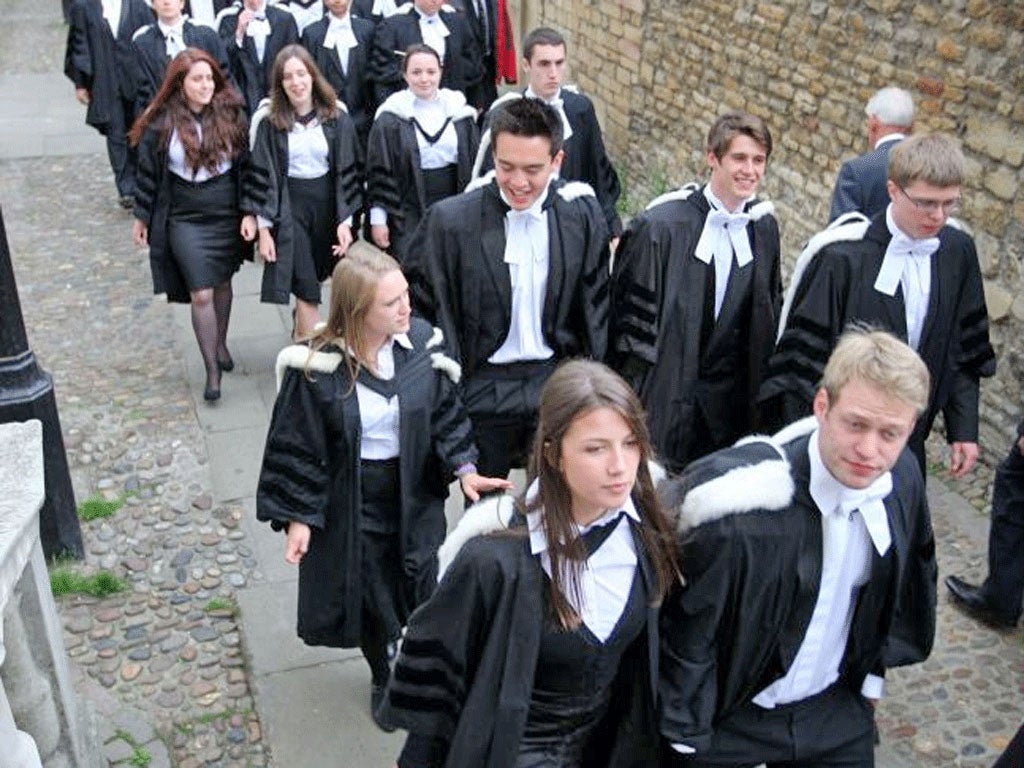Let kids apply after their A-level results
The number of young people from disadvantaged backgrounds applying to elite universities has fallen in the past decade. New ideas musts be considered

After all the money ploughed into encouraging students from disadvantaged backgrounds to apply to Britain’s most elite universities, it is profoundly depressing that their numbers have gone down in the past decade – even if only by 126. It should prompt members of the Russell Group of universities – 24 of the most research intensive higher education institutions in the UK – to examine whether their money is being spent in the best areas. Figures tend to support the theory – advanced in today’s Independent by social mobility tsar Alan Milburn – that it is not the fees (now up to £9,000 a year) that deter young people from these backgrounds from applying.
They should take note therefore of the report of the Higher Education Commission, set up by the Institute for Public Policy Research and published last week, which suggested awarding universities a “pupil premium” for every student from this background they enrol. In other words, the incentive should be offered to universities – rather than continue with fee waivers and bursaries to the students which seems to have had little impact on participation rates. (In fact, over the university system as a whole, statistics appear to show that students from better off homes are more likely to be put off applying to university since the introduction of fees).
When confronted with its record on recruiting students from low participation neighbourhoods, the Russell Group stresses the fact that many have taken the wrong A-level subjects to qualify for entry. Also, some teachers are perhaps putting off students from applying because they believe they may not fit in or adapt well to study at an elite institution. As a result, understandably, their students are reluctant to apply.
There is a way round this which would give students from poorer homes more confidence to apply to top universities. That would be to introduce a change which has rather dropped off the political agenda of late – allowing them to apply for university places after they have got their A-level grades. If students have done better than expected, they would then have more confidence to apply.
Finally, there is the question of whether universities should offer places to disadvantaged students with lower grade passes from affluent areas. This always has them spitting blood in the shires and in the independent school sector. However, research both in the United States and here suggests that those poorer students offered places in this way end up with better degree results than those who have cruised through their secondary education. Obviously it leaves a lot in the hands of admissions officers to assess the potential of individual candidates but research does seem to suggest the idea should not be dismissed out of hand.
Join our commenting forum
Join thought-provoking conversations, follow other Independent readers and see their replies
Comments
Bookmark popover
Removed from bookmarks